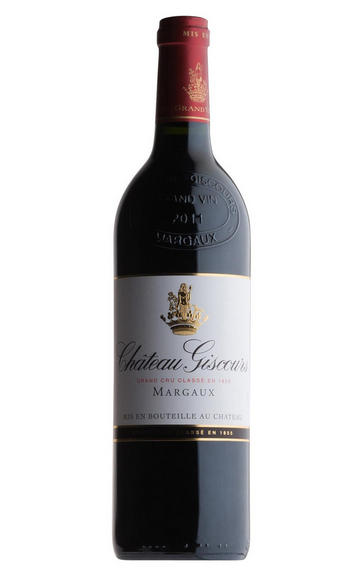
2017 Château Giscours, Margaux, Bordeaux
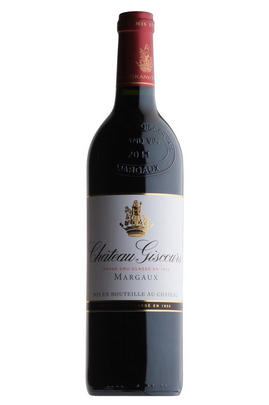
Critics reviews
The 2017 Giscours has an open and expressive bouquet with crushed strawberry and raspberry fruit, melted tar, tobacco and light floral tones. The palate is medium-bodied with fine-grain tannins and well-judged acidity. This is a classically styled Giscours, off-dry, a little reserved at first with a moderate spiciness coming through on the finish. It feels pinched at the moment and requires four to six years in bottle.
Drink 2023 - 2040
Neal Martin, Vinous.com (January 2020)
The 2017 Giscours is the result of an especially stringent selection, the most dramatic at the property going back to 1995. Medium in body, with terrific freshness and energy, the 2017 shows very well today. Dark red cherry, red plum, spice, liquorice, tobacco and savoury herbs all grace the glassy, understated Giscours. I can't wait to see how the 2017 ages given its vibrancy and a terrific sense of harmony.
Drink 2025 - 2037
Antonio Galloni, Vinous.com (March 2020)
50% new oak. Harvest September 15 to October 5.
Sweet blackberry and loganberry fruit, a little soft through the mid-palate, this lacks concentration on the finish if you are comparing it to the previous vintage, and yet it is sappy, cheerful and enjoyable, with sage and rosemary spice, a ton of lift and mouthwatering finish. Carefully constructed, leans into the vintage, not sacrificing its Margaux typicity. 41hl/h yield after frost in some parts of the vineyard.
Drink 2024 - 2040
Jane Anson, JaneAnson.com (February 2024)
Tasted blind. Deep ruby colour. Slightly muted on the nose with fresh rubber and summer pudding. The palate is lithe and sinewy, with fine but persistent tannins framing a bright core of red fruit. Lightly spiced on the finish, with hints of cedar and pine. Honest and compact.
Drink 2022 - 2033
Tom Parker MW, JancisRobinson.com (October 2021)
Blended of 71% Cabernet Sauvignon, 24% Merlot and 5% Petit Verdot, the medium to deep garnet-purple colored 2017 Giscours is scented of crushed black currants, blackberry tart and black raspberries with touches of Indian spices, Sichuan pepper and violets plus a waft of chocolate box. Medium-bodied with wonderful freshness defining the palate and elevating the red and black fruits, it finishes with a nice ripe, grainy texture paving the way.
Drink 2020 - 2031
Lisa Perrotti-Brown, Wine Advocate (April 2018)
A blend of 71% cabernet sauvignon, 24% Merlot and 5% Petit Verdot.
Subtle aromas of ripe fruit with plums and hints of clove and stone. Complex. Medium to full body with a fine line of tannins running through the mid-palate. Fresh and creamy texture.
Drink after 2021
James Suckling, JamesSuckling.com (January 2020)
Cool blue fruits on the nose, prunes and sultana aromas with scents of flowers, vanilla and cola. Juicy palate with a plump texture, balanced by a fresh, harmonious acidity.
Drink 2023 - 2038
Georgina Hindle, Vincenzo Arnese, Andy Howard MW, Decanter.com (February 2022)
An up-and-coming Margaux estate, the 2017 Château Giscours offers a complex bouquet of sandalwood, damp flowers, sous bois, and spicy red fruits. It’s slightly stretched and firm on the palate, with medium-bodied richness. I’d like to see more fat and texture here, but I suspect it will put on more weight with time in barrel and bottle. It should drink nicely for a decade.
Jeb Dunnuck, JebDunnuck.com (April 2018)
About this WINE
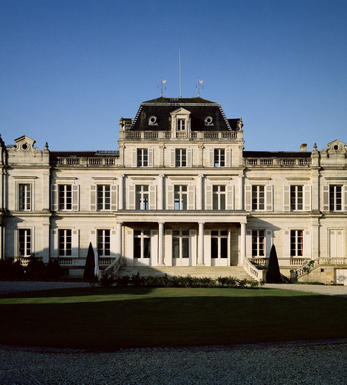
Chateau Giscours
Château Giscours is one of the largest Margaux properties and now producing wine worthy of its 3ème Cru Classé status. It is located in the commune of Labarde and has over 80 hectares of vineyards.
Giscours was in a dire state when it was acquired by Nicholas Tari in 1952. He invested heavily and the quality of the wine improved beyond recognition. In 1995 he sold up the property to Dutch businessman Eric Albada Jelgersma.
Giscours's wine is typically a blend of 65% Cabernet Sauvignon, 30% Merlot and 5% Cabernet Franc. The grapes are fermented in temperature-controlled tanks and the wine is then aged in small oak barrels (30-40% new) for 18 months.
Giscours produces richly aromatic wines that are surprisingly powerful on the palate, displaying ripe, black fruit with hints of cedar and new oak.
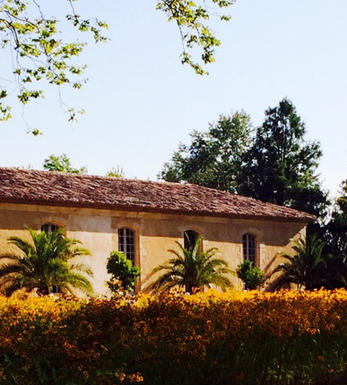
Margaux
If Pauillac can be seen as the bastion of ‘traditional’ Red Bordeaux, then Margaux represents its other facet in producing wines that are among Bordeaux’s most sensual and alluring. It is the largest commune in the Médoc, encompassing the communes of Cantenac, Soussans, Arsac and Labaude, in addition to Margaux itself. Located in the centre of the Haut-Médoc, Margaux is the closest of the important communes to the city of Bordeaux.
The soils in Margaux are the lightest and most gravelly of the Médoc, with some also containing a high percentage of sand. Vineyards located in Cantenac and Margaux make up the core of the appelation with the best vineyard sites being located on well-drained slopes, whose lighter soils give Margaux its deft touch and silky perfumes. Further away from the water, there is a greater clay content and the wines are less dramatically perfumed.
Margaux is the most diffuse of all the Médoc appelations with a reputation for scaling the heights with irreproachable wines such as Ch. Margaux and Ch. Palmer, but also plumbing the depths, with too many other châteaux not fulfilling their potential. There has been an upward shift in recent years, but the appellation cannot yet boast the reliability of St Julien. However, the finest Margaux are exquisitely perfumed and models of refinement and subtlety which have few parallels in Bordeaux.
Recommended Châteaux: Ch. Margaux, Ch. Palmer, Ch. Brane-Cantenac, Ch. Rauzan-Ségla , Ch. Dufort-Vivens, Ch. Ferrière, Ch. du Tertre, Ch. Giscours, Ch. d'Angludet.
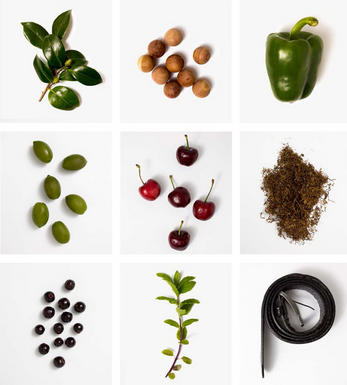
Cabernet Sauvignon Blend
Cabernet Sauvignon lends itself particularly well in blends with Merlot. This is actually the archetypal Bordeaux blend, though in different proportions in the sub-regions and sometimes topped up with Cabernet Franc, Malbec, and Petit Verdot.
In the Médoc and Graves the percentage of Cabernet Sauvignon in the blend can range from 95% (Mouton-Rothschild) to as low as 40%. It is particularly suited to the dry, warm, free- draining, gravel-rich soils and is responsible for the redolent cassis characteristics as well as the depth of colour, tannic structure and pronounced acidity of Médoc wines. However 100% Cabernet Sauvignon wines can be slightly hollow-tasting in the middle palate and Merlot with its generous, fleshy fruit flavours acts as a perfect foil by filling in this cavity.
In St-Emilion and Pomerol, the blends are Merlot dominated as Cabernet Sauvignon can struggle to ripen there - when it is included, it adds structure and body to the wine. Sassicaia is the most famous Bordeaux blend in Italy and has spawned many imitations, whereby the blend is now firmly established in the New World and particularly in California and Australia.


Buying options
Add to wishlist
Description
The 2017 Giscours has an open and expressive bouquet with crushed strawberry and raspberry fruit, melted tar, tobacco and light floral tones. The palate is medium-bodied with fine-grain tannins and well-judged acidity. This is a classically styled Giscours, off-dry, a little reserved at first with a moderate spiciness coming through on the finish. It feels pinched at the moment and requires four to six years in bottle.
Drink 2023 - 2040
Neal Martin, Vinous.com (January 2020)
wine at a glance
Delivery and quality guarantee